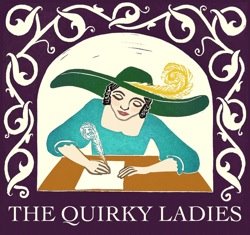In the wake of its recent movie release, I chose to review Audrey Niffenegger's The Time Traveler's Wife, which is a favorite of mine. I wanted to give a plug for the book just in case the movie took a wrong turn as so many books-to-movie scenarios do. This got me thinking about how many books, when transformed to the screen, are unrecognizable from their print counterpart. Rather than rant about this Hollywood idiocy, I chose to save it for another blog --- this blog. A blog entitled "Why the hell does Hollywood buy the rights to a NYT bestseller only to chuck plot and character that clearly worked, hence its bestseller status, and transform it into a water-down, pathetic version of its former self, the title being the only connection to the original." What is up with that? To borrow an expression from Penelope, Jesus H. Cranola.
While I understand some scenarios in a book book can't translate to screen, it still does not explain many of the changes made when bringing a novel to life on screen. Do character's professions really need to be altered? What about the essence of what makes a reader fall in love with a character? Does that have to be stripped? Or a book's ending changed?
For a book to make the NYT bestseller list, usually over a million copies have been sold. For them to continue to make it, millions more have to fly off the shelves. Isn't this testament to the story being good? Solid? Loved? How about lucrative? So why does Hollywood tamper with a product that's already proven to make money and has garnered millions of fans? Is it due to Hollywood's arrogance or literary ignorance? I worry it's to make people like me crazy. So crazy we have blog about it.
I'm an avid fan of Sophie Kinsella's Confessions of a Shopaholic series, so needless to say, I was excited to see the movie. Well, I'm still regretting it. I don't understand why the hero, Luke Brandon, who owns a successful public relations firm in the book series, works for someone else and is in financial journalism in the movie version. That was a necessary change? But more importantly, what did they do to our beloved Becky Bloomwood? A plucky, irresistible heroine became a daft, embarrassing idiot. In the movie, Becky is wearing an outfit that mirrors the waitress staff, so she is ordered to serve the guests -- and without protest, she does? Don't remember this in the book, thank you very much. I could understand her serving the guests if it's purpose was to provide an ingenious way to gain entrance to an event where otherwise she could not. That shows brains and bravado. In the movie, I felt the scene was added to.... I don't know, I'm still working that one out. Oh, right. It was to make her look like more of an idiot than they already made her out to be.
And why delete the scene where Becky confronts Luke on a t.v. morning show, accusing one of Luke's client's of cheating his patrons? It was a pivotal scene in the book, showing Becky's brains and courage. Oh, but I forget, Luke doesn't have clients in the movie because he's working in financial journalism so he could interview Becky for a job and make her look stupid.... Right. And how does Becky being dumb and daft explain why millions of fans follow her character through a four book series?
I heard the stunning ending to Jodi Picoult's My Sister's Keeper has been changed from the book's. I haven't seen the movie, so I'll refrain from commenting too much, but this change alone makes me wary, for it alters the whole meaning of the original story.
Some movies do succeed in making the transition from book to film. Both the Colin Firth and Kiera Knightley's versions of Pride and Prejudice come to mind. I also recently enjoyed Julia & Julie, which combines two publications, My Life in France by Julia Child and Julie Powell's Julie & Julia. These movies culled the best out of the books without altering plot or characters. And of course, Pride and Prejudice had Colin Firth while Julie & Julia had Meryl Streep.
I guess we readers have to accept that once an author sells the film rights to their work, the story we know and love in print is not necessarily the story brought to screen. If I keep reminding myself of that, perhaps one day I'll stop lamenting Becky Bloomwood's sad screen debut. After all, she's still a plucky, irresistible literary heroine with a huge fan base of readers following her.
I hear they're making a film version of Love Walked In by Marisa de los Santos. Oh dear, I so loved that book and now I have to worry.....

1 comment:
Vicki--this is actually a really good question. Why does Hollywood need to change the books? I don't get it...unless certain aspects will not translate well onto screen. But the examples you have brought up seem to do more with character traits. Weird. When I sell the movie rights for Sweet Inspiration, you can be in charge of the whole thing! :) (Do you think you could get Hugh Jackman on board as one of the Klaus brothers? Come on!)
Post a Comment